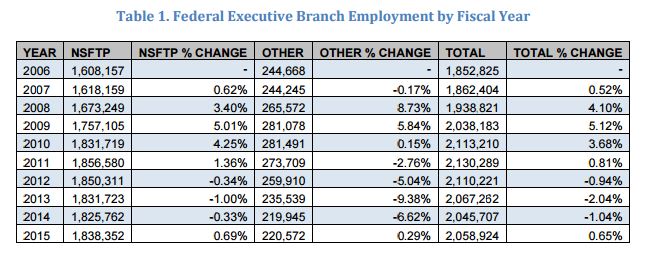
Troop increase, hiring freeze could pose problems for military families
The National Military Families Association wants an increase in family support if end strength numbers rise.
As President Donald Trump continues his push to expand the military force, one prominent service member organization is asking the executive to pull back on the reins.
The National Military Family Association (NMFA) is asking government leaders to consider how an increase in military personnel would stress the support systems for service members and their families.
NMFA Executive Director Joyce Raezer told Federal News Radio if the President and Congress increase military end strength, her organization would like to see a proportional increase in personnel support funding.
“That would be childcare centers, staffing and resources at the family centers, health care access. If we add more troops to the force, but don’t change the resourcing for our military health care facilities then what will probably happen is our families will probably have a harder time getting a medical appointment for themselves or their kids,” Raezer said.
That may be difficult considering the President signed a memorandum freezing all hires by the government on Jan. 22.
“This memorandum counters the dramatic expansion of the federal workforce in recent years,” White House Press Secretary Sean Spicer said during a Jan. 23 press conference. “In particular, it prevents filling vacant positions and creating new positions except when necessary to meet national or public security responsibilities.”
Contrary to Spicer’s characterization, the size of the federal workforce has slowly and steadily declined over the past the 50 years and more dramatically during the past few, when budget cuts and sequestration forced many agencies to cut back.
According to the Office of Personnel Management, 2,038,183 people worked for civilian agencies in 2009. Federal employment ticked up to more than 2.1 million people between 2010 and 2012 but dropped again in 2013, when government employed 2,067,262 people. As of 2015, 2,058,924 people worked for civilian agencies, according to OPM.

The memo does not apply to military personnel, but it does apply to Defense Department civilians.
Furthermore, the Office of Management and Budget will release a plan in the next 90 days to reduce the size of the federal workforce.
Congress already approved an increase in military end strength for 2017 in the defense authorization act, but funds have yet to be allocated for the growth.
Raezer said she is very encouraged by Defense Secretary James Mattis, based on his first remarks to the public after being sworn in.
“He talked about the people, he talked about the troops, he talked about the families. He is a warrior, as a successful warrior he understands the link between the readiness of the troops and what’s going on back home,” Raezer said. “We look to him to be conscious of what does it take to support the families of the troops so that the troops can focus on their mission.”
NMFA sent an open letter to Mattis asking him to support military family issues, especially budget issues.
More Defense News
“Military family support and services should not be casualties of budget battles on Capitol Hill,” the Jan. 23 letter stated.
The letter also urges the Trump administration and Congress to quickly fill important senior positions in DoD, especially those pertaining to the new military retirement system and the changes made to military health care in the past two defense authorization acts.
NMFA sent a letter to Trump after his election to express concerns as well.
The letter reminded Trump that budget cuts caused by sequestration have “closed commissaries, furloughed medical clinics, put health care benefits in jeopardy, and taken valuable dollars from critical readiness training for service members.”
Sequestration will return to create across-the-board cuts on defense and domestic spending in 2018 unless Congress can repeal the Budget Control Act or come to a budget deal.
“Having the administration and the Congress run by the same party certainly should make it easier to hold them accountable for moving forward to end sequestration and come up with a budget agreement that recognizes the needs of our military … conceivably it should be easier to come up with that kind of deal, but there’s no excuse now, folks,” Raezer said.
Copyright © 2025 Federal News Network. All rights reserved. This website is not intended for users located within the European Economic Area.
Scott Maucione is a defense reporter for Federal News Network and reports on human capital, workforce and the Defense Department at-large.
Follow @smaucioneWFED




